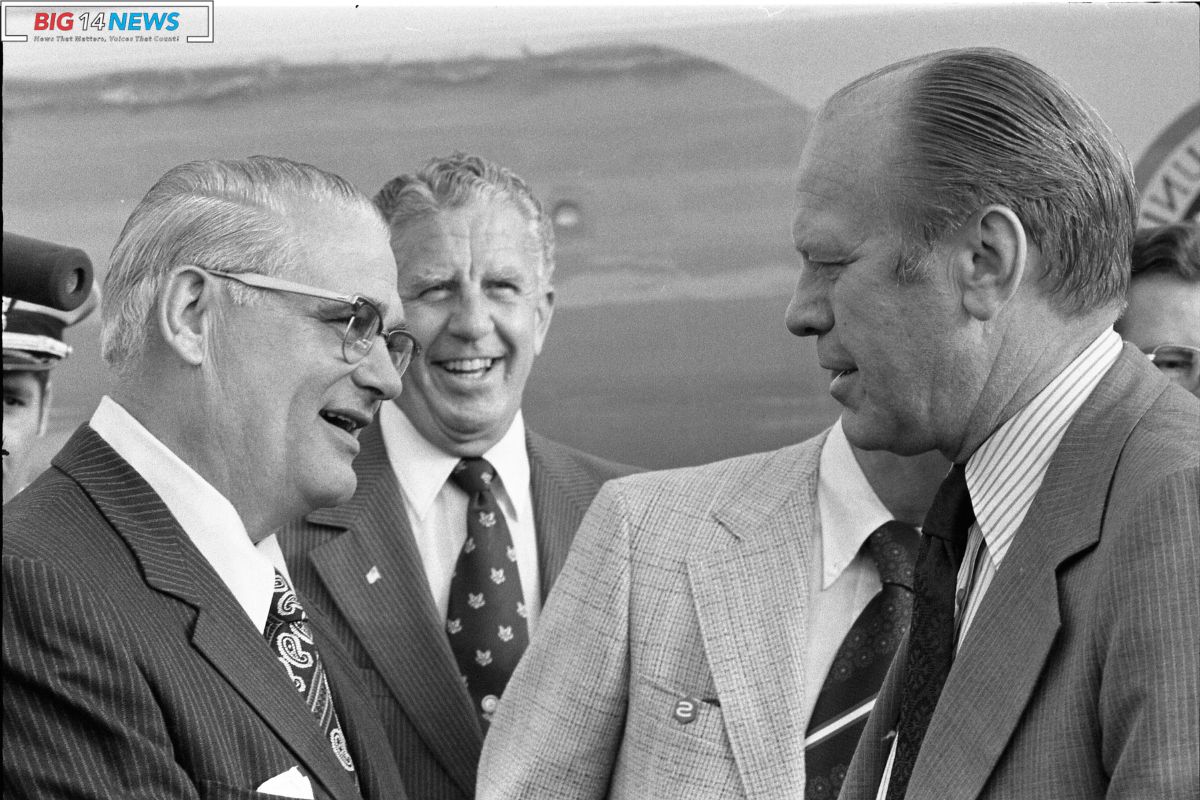President Ford Gridiron Diplomacy: In 1976, something rare happenedthe Michigan-Ohio State rivalry took a backseat to politics. It was the only time since 1948 that Michigan turned red, and Ohio went blue in a presidential election. Gerald Ford secured victory in Michigan and narrowly lost Ohio, but his connection to the Wolverines was evident throughout his political career.
Ford, a three-time varsity letter winner, two-time national champion, and former MVP, had a deep passion for “his Michigan.” Even as he transitioned from a football player to a rising political star, the rivalry remained a constant in his life. Ford’s family even took precautions for potential Michigan losses, providing him with a foam brick to vent his frustration during games.
As President, Ford understood the power of football in building connections. He made calls to Ohio State coach Woody Hayes, not as a political advisor, but as a friend and fellow football enthusiast. The Michigan-Ohio State game became a recurring theme in Ford’s interactions, whether in the White House or on the campaign trail.
In a memo from 1975, Ford was advised to discuss football, specifically the Michigan-Ohio State game, during a call with Rep. John Buchanan of Alabama. Even during official communications, the rivalry found its way into the conversation, showcasing Ford’s willingness to use it as an icebreaker.
Ford’s approach to the rivalry varied depending on the state. In Ohio, he balanced self-deprecation with expressions of love for the rivalry without taking a specific side. In Michigan, his partisan loyalties were more explicit, making it clear where he stood.
Despite the political benefits of strategic ambiguity, Ford’s genuine fandom endured. After his presidency, he remained connected to Michigan, regularly calling Wolverines coaches and attending games. Football, especially the Michigan-Ohio State rivalry, remained a core part of Ford’s identity, showcasing the enduring power of a college football rivalry in the world of politics.
ALSO READ: Alabama Christian Academy Angler Chooses: Faulkner University Bass Fishing Team Offer
Also Read: Chinese EV Battery Manufacturer Rejected Proposal: in Alabama Raises National Security Concerns
Our Reader’s Queries
What was President Ford known for?
At home, Ford was in charge during the toughest economy in the last forty years since the Great Depression, with prices going up and a downturn in the economy. In a move that caused a lot of debate, he pardoned Nixon for his part in the Watergate scandal.
What major issue did Ford have to deal with while President?
Mastering inflation, reviving a depressed economy, solving chronic energy shortages, and ensuring world peace presented significant challenges. The President took action to address these issues by curbing government intervention and spending, opting for alternative solutions to the problems facing American society and the economy.
Which did President Ford’s Win Program try to stop?
Whip Inflation Now (WIN) in 1974 aimed to rally Americans to fight against rising prices by promoting individual savings and responsible spending, along with government actions, as endorsed by U.S. President Gerald Ford.
What was Ford’s goal for his presidency?
In his first year as president, Ford set out his plans despite facing resistance from a predominantly Democratic Congress. His initial focus was on controlling inflation. However, as the nation’s top domestic concern shifted to recession, he adjusted his approach to focus on tactics designed to boost the economy.

